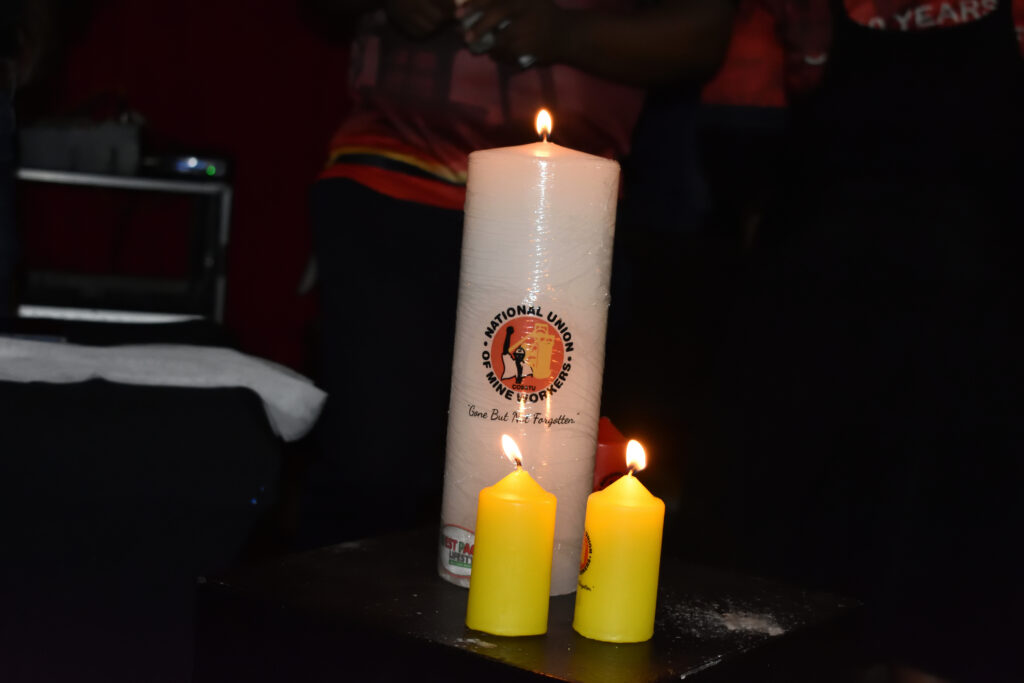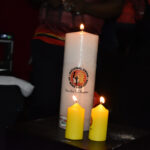15 May, 2025In a sombre candle lit ceremony, over 300 workers, families and community members, representatives of mining companies, government officials and the National Union of Mineworkers (NUM) members gathered in Orkney on 10 May to remember 104 Vaal Reef gold mineworkers who died in the worst elevator accident, in history, in 1995.
The event is part of the commemorations for the International Day for Health and Safety at work which is celebrated internationally on 28 April.
According to reports, the workers who had finished their shift and were surfacing were hit by a locomotive causing their cage to plunge 460 meters into the shaft. Investigations attributed the cause of the accident to multiple failures caused by negligence to adhere to safety measures. An inquiry by the Leon Commission recommended prosecution for culpable homicide of Vaal Reefs Exploration and Mining Company, a subsidiarity of AngloAmerican which later became AngloGold and AngloGold Ashanti. Although this did not happen, the NUM said a class lawsuit can still be made.
However, the commission led to the passing of the Mine Health and Safety Act and stricter regulations in the industry. Since then, fatalities in the mining industry have reduced with the South African mining industry recording its lowest fatality in 2024 when 42 workers were killed in mine accidents according to mine occupational health and safety statistics. The NUM says these statistics “starkly illustrate that the occupational death chambers within the mining industry still persist.”
David Msiza, chief inspector of mines in the department of mineral and petroleum resources said: “South Africa must continue to promote accident prevention as lives are still being lost to accidents and occupational diseases.”
The Vaal Reefs Disaster Trust was established to support the miners’ 431 dependants from Botswana, Eswatini, Mozambique, Lesotho and South Africa and provided financial assistance for education up to tertiary level. The NUM, an affiliate of IndustriALL Global Union, said the trust which was set up at the insistence of trade unions has since been wound up.
Nomthandazo Joni, one of the trust’s beneficiaries studied commerce and later trained as a health and safety officer, expressed how devastated the families were by the accident:
“Our mothers suffered the trauma of losing their husbands and most did not survive for long. Some families collapsed. Worse still, even beneficiaries who completed their studies are unemployed.”
Daniel Balepile, NUM president said:
“The trust’s main mandate was education and this was achieved as most of the beneficiaries completed tertiary education.”
“The Vaal Reef disaster reminds us of the dangers of neglecting safety in the mines and the greatest lesson from this tragedy is to remain vigilant on health and safety. We always stress on the workers’ right to refusal of dangerous work especially when their lives are at risk,”
said Glen Mpufane, IndustriALL director for mining and health and safety lead.





